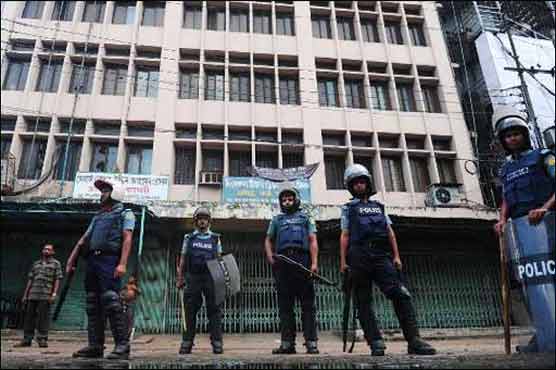Two killed in latest Bangladesh protest

Hasina offered to hold talks in line with her proposal, but Zia refused.
DHAKA (AP) At least two people were killed Friday and more than a dozen were hurt when security officials in southern Bangladesh opened fire on opposition supporters who tried to defy a ban on protests, just days before a planned national general strike.
Local police official Ranjit Kumar Barua in a coastal district of Cox s Bazar told The Associated Press by telephone that the violence took place when opposition supporters attacked police and paramilitary border guards with sticks, ignoring a ban on rallies in the area. At least 15 people were injured in the violence, he said.
"We had no other way but to open fire," he said.
The government has banned holding any rallies in parts of the country fearing violence as the opposition gears up for street protests.
The deaths came as opposition leader Khaleda Zia said Friday she and her allies would stage a three-day general strike across the country from Sunday morning to back demands for a caretaker government made up of people from outside political parties to oversee elections due by early January.
Zia told a huge rally that Prime Minister Sheikh Hasina had two days to agree to the demand, otherwise more protests will be announced. Street protests in Bangladesh often turn violent.
Such a caretaker government has been used in the past but Hasina s government scrapped the provision in 2011, citing a Supreme Court ruling saying the provision was unconstitutional. But opposition says the dropping of the system makes it easier to rig the election a charge denied by the government.
Hasina recently proposed establishing an all-party government with herself as the leader to oversee the elections, but Zia, a former prime minister, rejected that.
Hasina offered to hold talks in line with her proposal, but Zia refused.
Bangladesh has had a parliamentary democracy since Hasina and Zia together threw former military dictator H.M. Ershad out of power in 1990, but peaceful transfers of power have remained a big issue.


